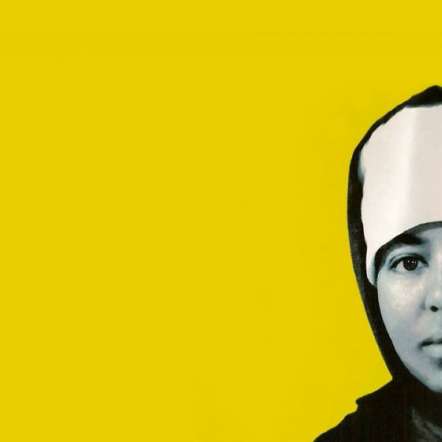
David Byrne Presents: Ethiopian Jazz
By Todomundo
Apple Music: Click Here
Spotify Music: Click Here
Last month a giant of Ethiopian music passed away. Emahoy Tsegué-Maryam Guèbrou was known as the honky tonk nun. As a young girl, she was one of the elites and went to a Swiss boarding school. She had a car and was outspoken about women's rights. When Musolini invaded Ethiopia in 1939 she was sent to Cairo, where she studied Western music. After studying in Cairo she got a scholarship to the Royal Academy of Music in London but she was refused entry and in response she joined a monastery - she stayed there for 10 years until it was shut down. Then she returned to the piano and eventually composed and recorded her own compositions - which combined Ethiopian scales with her love of Debussy and other European composers. Her music is haunting and beautiful. There’s a doc about her called Labyrinth of Belonging
Ethiopian jazz is a sleeping beauty. In the 1960s and early 70s it flowered and was heard in many parts of the world. Then an authoritarian regime called The Derg - (not to be confused with The Borg or The SLORC in Burma)- crushed social life in Ethiopia in 1974. In 1991, after 17 years of silence - democracy and music returned to Ethiopia. In 1997 a French music producer began collecting, recording and releasing this music in a series or records called Ethiopiques. That’s where many of these recordings come from.
+++++++
That’s the short version of the story. In the longer version Mulatu Astatke went to study aeronautical engineering as a young man during the 50s in Wales where he came in contact with a wide variety of music. He dropped engineering and went to Trinity College in London to study music ( wonder what his parents thought of this?). There, he came in contact with jazz players and with other African musicians who were introducing their music to Western listeners. In 1958 he continued his studies at Berklee College of Music in Boston- which was the only music school at the time that taught jazz. He was the only African student at the school.
He had the idea that he could make a synthesis- taking the improvisation of jazz by using the 5 note pentatonic scale of Ethiopian music- thus retaining its unique flavor and melodies. Then, in the 60s, he moved to NY where he encountered the modal innovations of Miles and Coltrane- using different scales but not too different in principle and structure from the Ethiopian stylings he was playing. (Unlike tonal music, modal music is not organized around a tonal center. modal music is very popular in alternative realms of music, such as jazz and progressive rock, and less common in popular music Modal music is actually very old- many of the “modes'' originated in Medieval church music.Or in the chants of the Ethiopian coptic christian churches)
Mulatu formed a group and started playing in the US and Ethiopia.
In the 60s Emperor Haille Selassie opened up the country and there was an explosion of Ethiopian music- Mulatu returned but folks were skeptical at first- the Western influences and his vibraphone were new and foreign. Eventually other groups picked up on the style and it became very popular- but pretty much only in Ethiopia.
When the Derg took over in 74’, they frowned on the Western influences in Ethio Jazz and this popular music- only patriotic songs were allowed. A generation grew up with no knowledge of this music, but Mulatu and others were still around. When democracy returned and things began to open up in the 90s the French producer Francis Felceto began collecting and releasing the recordings from the 60s and 70s on his Ethiopiques collections…including those of the honky tonk nun.
-David Byrne
David Byrne Presents: Ethiopian Jazz
By Todomundo